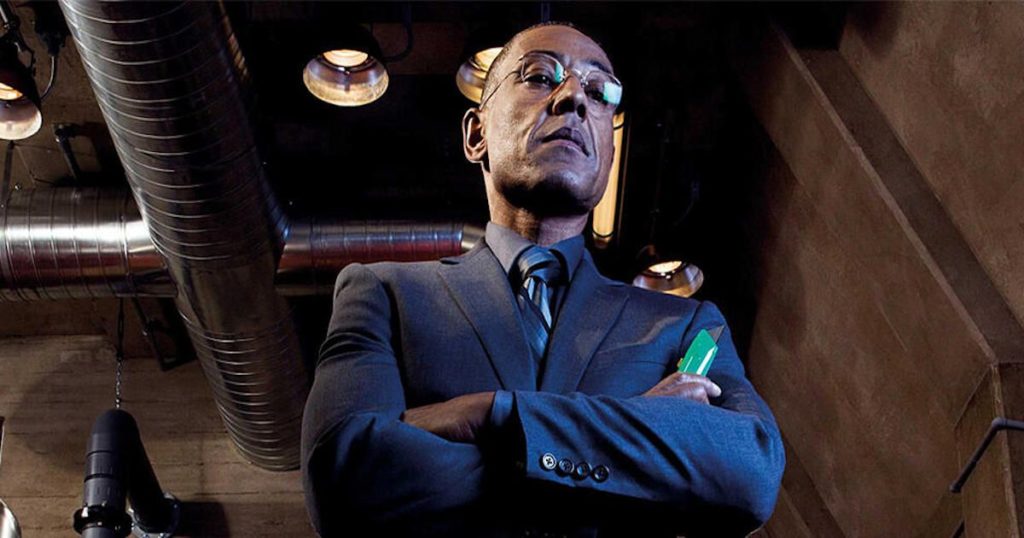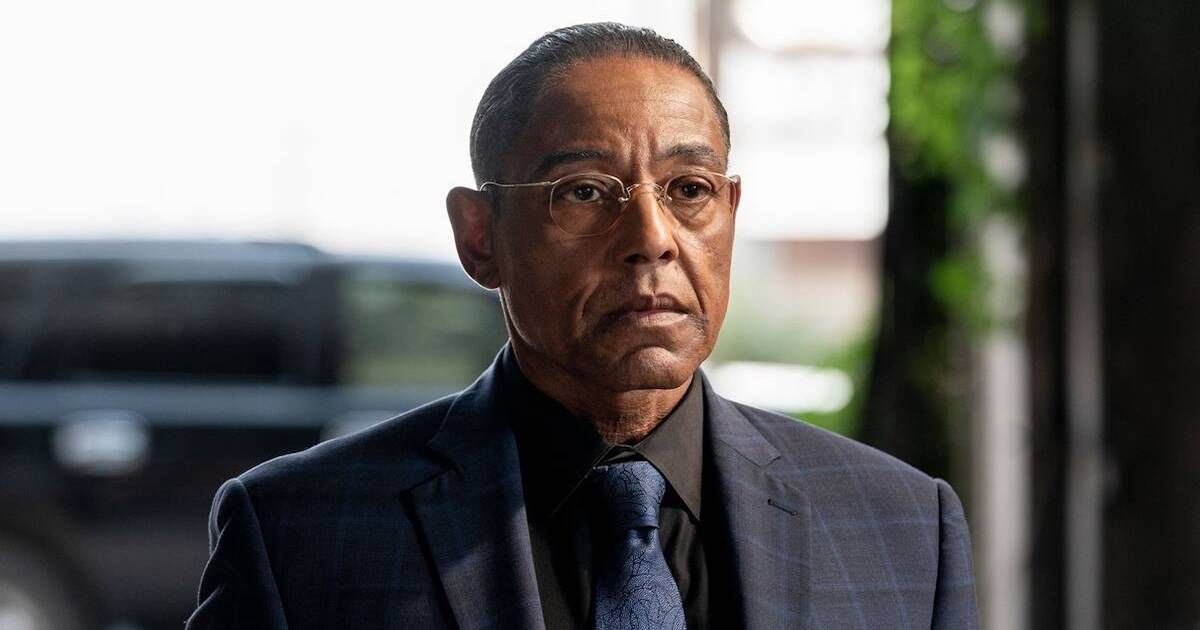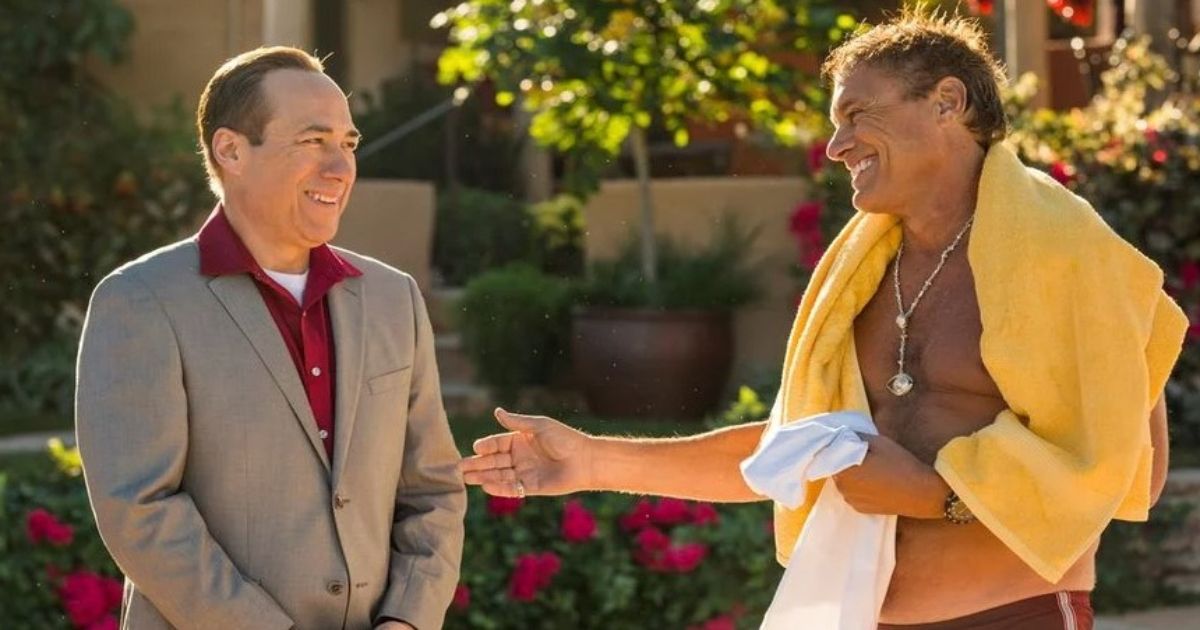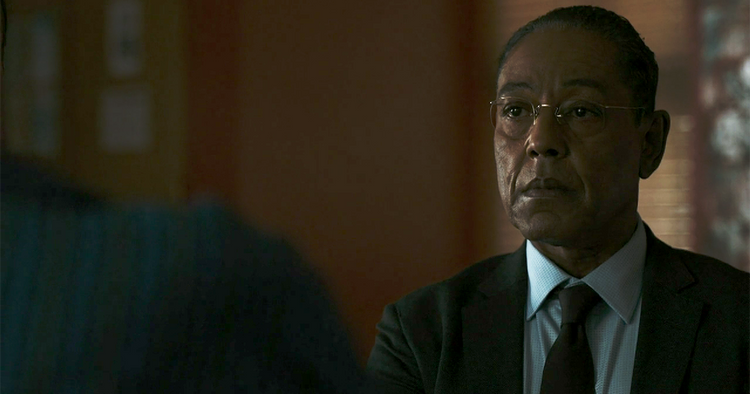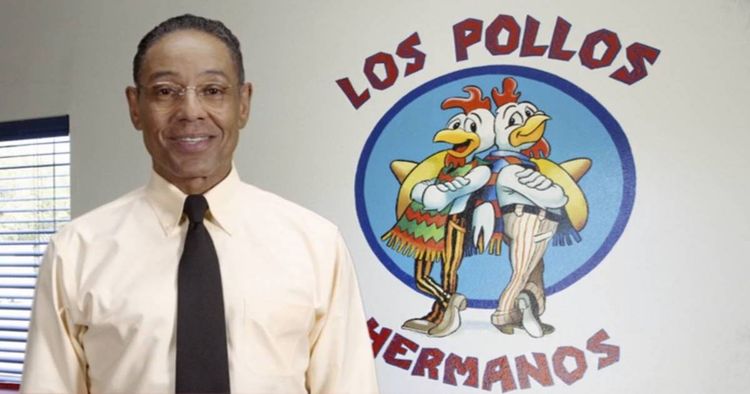In the world of Breaking Bad, Gustavo Fring (Giancarlo Esposito) has emerged as one of the most well-liked characters. The prequel series Better Call Saul goes into greater detail on this chicken-slinging drug dealer, but there is still a lot we don’t know about him. Gus cautions Walter (Bryan Cranston) to avoid repeating a mistake at one point in season three of Breaking Bad, mostly in reference to Walt’s confidence in Jesse (Aaron Paul), a “addict.” Like with most of Gus’ background, spectators are left to conjecture as to what this formative encounter was, but it certainly seems to have been a lesson that has influenced the way Gus conducts himself and conducts business. There are two Gustavo Frings—one who existed before coming into contact with Don Eladio (Steven Bauer) and the Juarez Cartel, and the other who pursued him out of a desire for calculating vengeance.
When Gus and Max Arciniega (James Martinez), who is Gus’s partner, meet with Eladio, Gus seems more upbeat, full of life, and like a confident, radiant man. Gus loses confidence after Hector Salamanca (Mark Margolis) kills his partner, adopting a chilly and reclusive personality. Gus watches Max fall into the water, and the light in his eyes goes out for good. He had likely also lost the love of his life in addition to his spouse.
Gus was doomed the moment he met Eladio. His demise was imminent, and the dominoes had already started to fall. Gus would eventually meet Walter White and die because of his drive to vengeance. During his time in Chile, Gustavo Fring was on another route—a path to the top—where he was building a reputation that would protect him from the Cartel and prevent him from dying.
Generalissimo
Gus is questioned by Hank Schrader (Dean Norris) in “Hermanos,” the eighth episode of Breaking Bad’s fourth season, in relation to his fingerprints being discovered at Gale Boetticher’s (David Costabile) apartment. Hank admits to being shocked that while learning that Gus emigrated to Mexico in 1986 and subsequently received an entry visa to the United States, he couldn’t uncover any records of him staying there. Gus wants nobody to know who he was in Chile, so he begs Mike (Jonathan Banks) to look for any signs of him. Mike responds that if he can’t find Gus, then no one else will either.
When they first meet, Hector Salamanca addresses Gus as “Generalissimo,” a designation denoting the head of a unified military army. Gus had previously served for Augusto Pinochet’s military dictatorship, which took control in 1973 following a coup against Salvador Allende, a politician who had been chosen democratically. Gus would have been fifteen years old at the time of the coup assuming he shares Giancarlo Esposito’s age. Gus was not a career military man, therefore it is improbable that he was a soldier during this time. His character also doesn’t read that way. Gus was probably pursuing a degree in business at this time, possibly at a prestigious university.
Hector’s claim was probably an exaggeration of his status in the Pinochet government, and Gus is most likely a member of military intelligence rather than a field general. Gus would have participated in several murder attempts, kidnappings, and acts of torture if he had been a member of the CNI (National Information Center). The CIA actively supported the Pinochet administration because it was a far-right anti-Communist regime, in an effort to slow the spread of Communism in Latin America. If that’s the case, there’s a high likelihood Gus worked for Pinochet and the CIA since many in Chile’s intelligence services had connections to the agency.
Gus’ organisation in Breaking Bad and Better Call Saul functions somewhat like an intelligence agency because of the way he frames crimes, murders individuals or causes them to vanish, tails, and secretly records people. Gus would probably have taken a more militaristic stance like the Salamancas if he had been a “General.” The Juarez Cartel didn’t kill Gus, which the CIA connections would account for.
The Juarez Cartel
In Breaking Bad and Better Call Saul, Gus is a member of the Juarez Cartel, though this is never explicitly stated. Hank encounters the Juarez Cartel while he is in El Paso and uses an informant named Tortuga (Danny Trejo) to infiltrate them. Tortuga’s duplicity is discovered by Juan Bolsa (Javier Grajeda) and the Salamanca Twins (Daniel and Luis Mocada), who have him beheaded. Given that Bolsa was one of the founding members of “The Cartel,” in the episode, it is almost certain that this is the Juarez cartel. Gus undoubtedly emigrated to Mexico from Chile in 1986 with the aid of the CIA because he later received a visa for the United States, ostensibly without difficulty.
Some would claim that Gus was a CIA operative tasked with infiltrating Mexican cartels, but that would make it difficult to explain why Gus isn’t still engaged in this activity in Better Call Saul. Why would the CIA permit Los Pollos Hermanos to continue operating if they knew it was a drug-dealing front and Gus had stopped assisting them? This would be a bigger oversight in terms of government/criminal collaboration than the FBI’s relationship with Whitey Bulger. It’s more likely that Gus received a visa to the US and admission to Mexico as payment for his assistance to the CIA. Given that the CIA had little to no awareness of Gus’ drug dealing, their cooperation was probably in the past.
Gus and Max lured Juarez into a meeting by placing meth in one of their chicken buckets from Los Pollos Hermanos. Gus is known described as “the businessman,” while Max, his partner, is a trained chemist. It’s likely that these two first connected at their respective universities, forming their alliance. Eladio plays along with their suggestion while actually ordering Hector to shoot Max in the back of the skull. Eladio informs Gus as he falls to the ground that his time in Chile is the only reason he is still alive.
A year before Gus arrived, in 1985, DEA agent Kiki Camarena had been abducted, tortured, and executed in Mexico. The cartel was prohibited from abducting American government officials as a result of this kidnapping. Gus was a Chilean intelligence officer with connections to the CIA, as opposed to Max, who was merely a civilian, hence Eladio probably didn’t assassinate him. What then was the error that Gus committed twice? Maybe it was putting too much trust in the wrong people.
Gus reveals to Peter Schuler (Norbert Weisser) in Better Call Saul that it was Peter who saved them in Chile when they were up against the wall. Gus might have became involved in meth dealing in Chile and made the wrong connections, running the risk of being discovered by other intelligence agents for a crime that carried a harsh punishment under the Pinochet government and escaping with his life. The CIA destroying Gus’ life and compelling him to leave his house might also be referred to as the wrong people. When Gus arrived in Mexico, he killed his companion and lover, Max, by putting his trust in the wrong people. It’s safe to assume that he repeated whatever error he made in Chile in Mexico.
Man in the North
Gus is at his most powerful in Better Call Saul, using Los Pollos Hermanos as a front for the sale of meth while setting up the lab his protege, Gale, would eventually run. Gus’ perception of Gale is a reflection of the ideals he once held before becoming tainted by retribution. Gus reveals to Hank, who is questioning him, that Gale was a lovely and considerate person who he thought a lot of. Gale is a sympathetic and polite chemist who is willing to produce meth on the side, much like Gus’ lover Max. Gale may not be Gus’s favourite person, but he admires him for the virtues he upholds. Gus’ loss of his kind and gentle side and transformation into the cold and imposing guy spectators have come to know after Max’s death is entirely natural. Gus may be envious of Gale because he hasn’t yet lost his compassionate side, so when Walt and Jesse kill him, it’s like having Max shot again.
Gus is extremely picky about the individuals he does business with, and if the lesson he took away from his time before Breaking Bad and Better Call Saul was to be wary of sleeping with the wrong people, then Walt’s treachery is just another illustration of why trust should not be taken for granted. Gus’ respect and trust can never be regained since every time a wound is inflicted, it’s as though Gus returns to that pool with Eladio, Bolsa, and Hector and once again sees the love of his life pass away.

